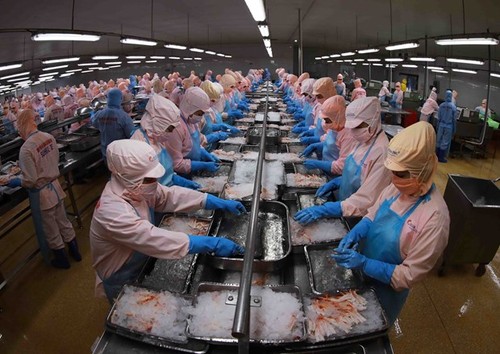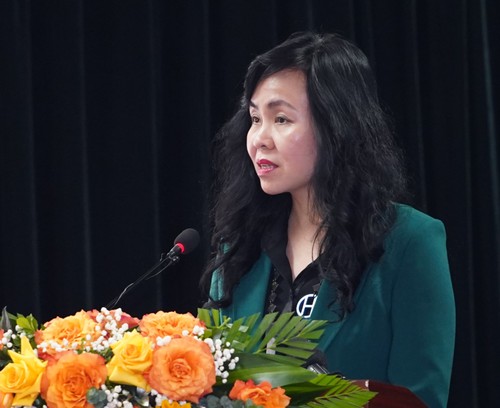 Seafood processing for exports (Photo: VNA) Seafood processing for exports (Photo: VNA)
|
The Ministry of Industry and Trade says the UAE is Vietnam's largest trading partner in the Middle East and North Africa. Vietnamese products including farm produce, seafood, processed foods, textiles, footwear, and electronic products, continue to grow in both volume and export value.
In 2006 Vietnam earned just 140 million USD from exports to the UAE. By 2022 the turnover from that market had reached 3.85 billion USD. In the first quarter of this year alone, bilateral trade turnover between Vietnam and the UAE was about 1.12 billion USD, up 22 from the previous year.
Because agriculture contributes less than 1% of the UAE’s economy (mainly livestock and dates), the UAE has to import most of its food.
As the number of visitors to the UAE is forecast to rise sharply this year, this will be an opportunity for Vietnam to increase the export of agricultural products and food to that market.
Truong Xuan Trung, who is in charge of the Vietnam Trade Office in the UAE, said last year, Vietnam earned nearly 5 million USD from exporting seafood to the UAE, up 18% from 2021.
“Vietnam mainly exports seedless lemons, dragon fruit, watermelon, and pomelo. Vietnamese cashew nuts currently account for the largest market share in the UAE, close to 81%. Export turnover of cashew nuts in 2022 will exceed 55 million USD, up 14% from 2021. Vietnamese pepper had a 65% market share in the UAE, with last year’s revenue reaching 58 million USD, up 3.5%. And rice export turnover reached 25 million USD and had a 7.3% market share in the UAE,” said Trung.
Vietnam's participation in bilateral and multilateral free trade agreements has boosted its international trade. Many agricultural and food products have been exported to markets with huge profit margins.
The CEPA will help Vietnam export goods to the UAE and reach other markets through the UAE gateway.
 Le Hong Anh, Director of the Asia-Africa Market Department (Photo: tapchicongthuong.vn) Le Hong Anh, Director of the Asia-Africa Market Department (Photo: tapchicongthuong.vn) |
Le Hong Anh, Director of the Asia-Africa Market Department, said the agency will continue to promote exports to the markets with which Vietnam has signed FTAs.
“We’re using the lessons learned from these countries to make recommendations to Vietnamese exporters. We expect to sign an FTA with Israel this year and will begin negotiations with the UAE to open up cooperation opportunities in the Middle East,” Hong Anh added.
The Vietnam Trade Office said the UAE is a fiercely competitive market in both price and quality. This is the biggest challenge for Vietnamese businesses when exporting goods to that market.
Vietnamese enterprises have to compete directly with businesses from India, Indonesia, Israel, and Turkey, the countries that have signed Free Trade Agreements (FTAs) with the UAE.
Nguyen Tuong, Deputy Secretary General of the Vietnam Logistics Business Association, insisted that free trade agreements such as EVFTA, CPTPP, and RCEP have helped import-export and logistics activities grow strongly.
According to Tuong, “The UAE, with its good seaport infrastructure and aviation facilities, is a key market in the Middle East, a trade hub with Africa, Latin America, Europe, and Asia. So this is a high-potential market, once we learn how to promote it.”
To boost exports to the UAE, Vietnamese businesses apply advanced technology to in production, revise management methods, and minimize intermediate costs to reduce product costs and increase the competitiveness of Vietnamese items.
As the UAE is an Islamic country, Vietnamese businesses will study the Muslim culture and consumer needs and build a Halal certification system for food, beverages, cosmetics, and Islamic fashions intended for that market.